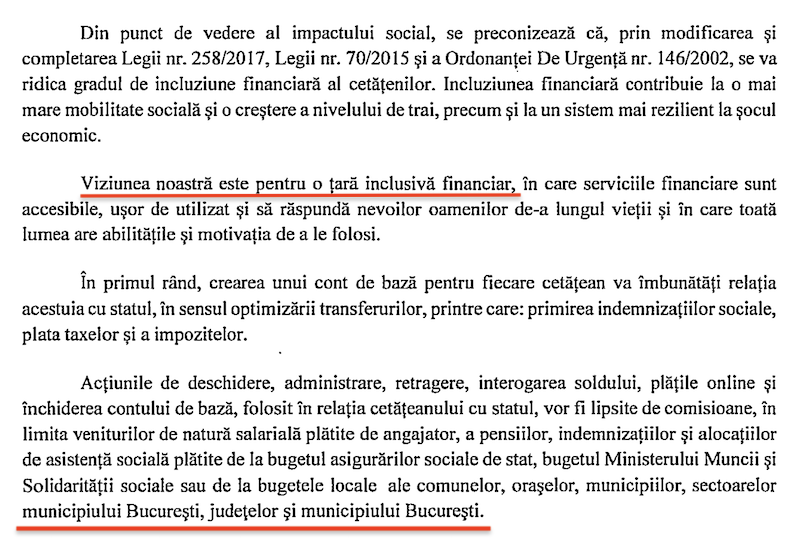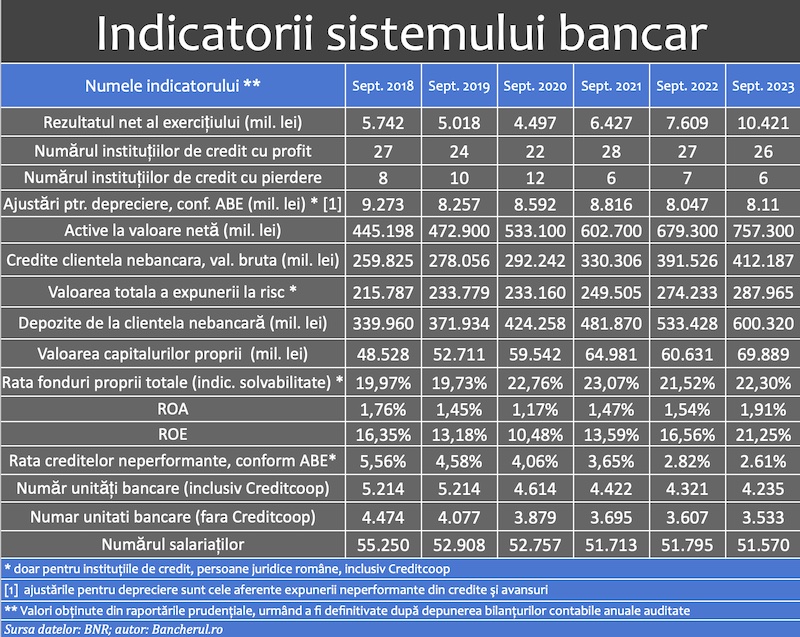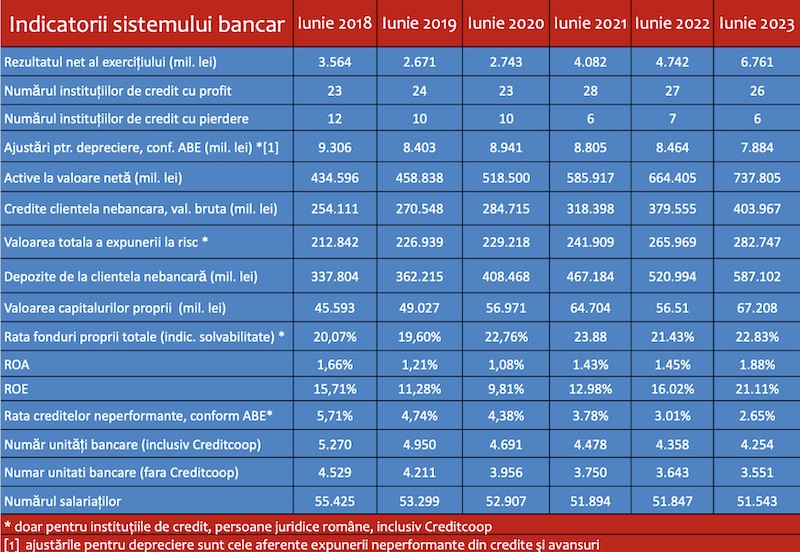Cum poate profita Romania de scumpirea alimentelor
Autor: Vasile Coman
2008-03-16 16:34
Alimentele din toata lumea s-au scumpit cu nu mai putin de 40% pe parcursul anului trecut, releva o statistica data publicitatii de Charles Riemenschneider, directorul de investitii din cadru FAO (Organizatia Natiunilor Unite pentru Agricultura si Alimentatie), cu ocazia conferintei organizate in 10 martie de BERD si FAO avand ca tema lupta impotriva inflatiei pretului la alimente.
Cresterea puternica a pretului alimentelor in intreaga lume afecteaza consumatorii, mai cu seama pe cei din tarile in curs de dezvoltare, printre care se afla si Romania, fapt care obliga guvernele sa ia masuri, adesea restrictive, precum controlul preturilor si cotelor de export, releva un comunicat al BERD (vezi originalul mai jos).
Situatia reprezinta insa o oportunitate unica pentru tarile din Europa de Est de a profita si de a (re)deveni puteri in sectorul agricol. Sa nu uitam de mitul Romaniei care se mandrea odata ca fiind una dintre puterile agricole ale Europei.
O agricultura care este acum cenusareasa econonomiei romanesti, in conditiile in care aceasta a avut o contributie negativa importanta anul trecut la revenirea inflatiei. In plus, productia agricola interna este cu mult sub cererea tot mai mare de alimente, stimulata de consumul galopant, fapt care determina cresterea importurilor si adancirea deficitului comercial.
Peisajul dezolant al agriculturii romanesti este incheiat de lipsa unei strategii guvernamentale prioritara si coerenta pentru dezvoltarea acestui sector, in care investitiile publice si private nu se observa.
Astfel, agricultura Romaniei este dependenta in cea mai mare parte de conditiile meteorologice. Dupa cum se exprima si guvernatorul BNR, Mugur Isarescu, doar un an fara seceta poate insema si un an agricol bun, dupa cum anul trecut, unul secetos, a reprezentat un dezastru pentru agricultura.
In aceste conditii raman serioase semne de intrebare daca Romania va putea profita de aceasta oportunitate unica, dupa cum o considera BERD.
O sansa in plus, deci, pentru competitorii tarii noastre, precum Rusia sau Ucraina. Si de ce nu, Moldova.
Potrivit BERD, Rusia, Ukraina si Kazakhstan detin 23 de milioane de hectare de teren arabil neexploatate de la caderea comunismului!
O mare parte din aceasta suprafata de teren uriasa ar putea fi din nou exploatata, cu mare usurinta si fara probleme de mediu, fiind singura regiune de pe glob in care este atat de usor sa faci terenurile sa produca eficient.
Si se pare ca asa se va intampla. Reprezentantul Ucrainei la conferinta BERD a spus ca tara sa si-ar putea tripla productia agricola, dar in conditiile unor investitii de aproximativ 80 de miliarde de euro in utilaje, ingrasaminte, pesticide, seminte, combustibil si personal calificat.
Fighting food inflation
EBRD/FAO conference on unlocking region’s agricultural potential
The rising cost of key foodstuffs is hurting consumers across the world and putting pressure on governments to take action, often in the form of restrictive measures such as price controls and export quotas.
As well as posing problems, however, this situation presents the eastern Europe with a unique opportunity to become an agribusiness powerhouse. To work out ways of tapping into the region’s potential, dozens of representatives from business and government came together at EBRD headquarters in London on 10 March 2008 to attend an EBRD/FAO-sponsored conference that brought together international financial institutions as well as public and private sector from the former Eastern bloc. “There is now an urgent need for both the private and public sectors to work together to create the conditions for sustainable investment that will restore the primacy of this region as a crucial centre of agricultural production,” EBRD President Jean Lemierre told the conference.
The recent rise in food prices has become a global concern. On the supply side, droughts and other natural disasters have reduced output while the expansion of biofuel crops has taken land out of food production. Meanwhile, demand has increased due to population growth in China, India and Africa and rising standards of living, meaning consumers are buying more meat and dairy products.
Action needed
The urgency of the situation was underlined when Charles Riemenschneider, the Director of the FAO’s Investment Centre, noted that worldwide food prices rose nearly 40 per cent between December 2006 and December 2007. “Food is a much higher percentage of the consumer basket in transition countries than in other European countries so food price inflation has more impact on consumers.”
At the same time, Russia, Ukraine and Kazakhstan have 23 million hectares of arable land that have not been used for food production since the collapse of communism. “Much of this unused land can be brought back to production without environmental problems,” said FAO Senior Adviser Eugenia Serova. “This is the only region in the world where it is so easy to bring land into production and increase productivity.”
Nevertheless, as Ms Serova pointed out, certain challenges need to be met before this potential can be realized: the region’s land tenure system lacks transparency, deterring businesses from making long-term investments; intellectual property rights are insufficiently developed, limiting the breeding industry; and training and research and development are weak.
Boris Supikhnov, Ukraine’s Deputy Minister of Agricultural Policy, reassured the conference that draft laws were going through the Ukrainian parliament to address land market issues. He added that although Ukraine was benefiting from the rising demand for biofuels, it was eager to boost its food production to help tackle food price inflation.
Three-fold expansion
Leonid Kozachenko, President of the Ukrainian Agrarian Confederation, said the country could triple its agricultural production but added that this would require an investment of some €80 billion in machinery, fertilizers, pesticides, seeds, fuel and training.
President Lemierre identified infrastructure as the main bottleneck to investment in the region. “Agri-processing is needed in remote areas, transport is needed."
Food company representatives took it in turns to outline some of the obstacles they face when trying to invest in the Bank’s countries of operations. These included difficulties in dealing with local authorities and an apparent lack of coordination between regional officials and policy makers in central government. “We never know who the right person to talk to is,” one investor complained.
Market-driven solutions
Others expressed concern about the impact of price caps and export quotas on their investments. “The private sector has to be able to make money in order to help unleash potential,” one business leader said. “Export blocks won’t help. They force us to look for other options.” In response, Mr Riemenschneider advocated a twin-track approach, with safety nets for the poorest consumers and policies to encourage productivity. “Price controls are a short-run solution.”
Concluding the conference, President Lemierre said guests had created an “amazing incentive for us to move the agenda and make sure the potential in the region is used.
“You are committed to your industries but also your regions and countries. People do realise what you do, they understand the challenges and know they need you,” he added. “We shall implement the lessons of the day.”
Comentarii
Adauga un comentariu
Adauga un comentariu folosind contul de Facebook
Alte stiri din categoria: Analiza
La care banci se poate face actualizarea online a datelor de catre firme
Actualizarea online a datelor firmelor, pe site-urile sau in aplicatiile bancilor, este posibila la doar trei institutii de credit, la restul fiind nevoie de prezenta intr-o sucursala. ING Bank a anuntata ca a introdus opțiunea de actualizare a datelor 100% detalii
Conturi bancare gratuite pentru incasarea salariului, pensiei si indemnizatiilor sociale. Dar cine poate sa-si faca unul?
Legea care permite in prezent celor fara conturi bancare sa-si deschida unul nou, denumit cont de baza, fara comisioane de deschidere, inchidere si retragere numerar la bancomat, a fost modificata de Parlament. Noua varianta a acestei legi, care mai asteapta detalii
Indicatorii sistemului bancar la finalul trimestrului 3 din 2023
Indicatorii sistemului bancar la finalul lunii iunie 2023, conform datelor furnizate de Banca Nationala a Romaniei (BNR). Indicatorii au fost calculați pe baza raportărilor financiar-contabile trimise la banca centrală de instituțiile de credit, detalii
Indicatorii sistemului bancar la finalul T2 2023
Indicatorii sistemului bancar la finalul lunii iunie 2023, conform datelor furnizate de Banca Nationala a Romaniei (BNR). Indicatorii au fost calculați pe baza raportărilor financiar-contabile trimise la banca centrală de instituțiile de credit, detalii
- Genoxinvest, o frauda online deghizata in platforma de investitii in criptomonede
- Raiffeisen nu-si despagubeste clientii fraudati online
- BRD plateste o dobanda de doar 0,1% la depozitele vechi, in stoc
- Bancile au facut un profit record de 10 miliarde lei in 2022
- Aedificium, fosta Raiffeisen Banca pentru Locuinte, si statul, obligati de judecatori sa achite prima de stat unui fost client
- Profitul bancilor, in crestere cu 19%
- Indicatorii sistemului bancar la finalul T1 2022
- Topul reclamațiilor la bănci înregistrate la Reclamatiibanci.ro
- Topul reclamațiilor la bănci înregistrate la Reclamatiibanci.ro
- Topul reclamațiilor la bănci înregistrate la Reclamatiibanci.ro
Profil de Bancher
-
Mihai Popescu, Presedinte
Metropolitan Life

“Acest produs pe care îl lansăm împreună cu ... vezi profil
Criza COVID-19
- In majoritatea unitatilor BRD se poate intra fara certificat verde
- La BCR se poate intra fara certificat verde
- Firmele, obligate sa dea zile libere parintilor care stau cu copiii in timpul pandemiei de coronavirus
- CEC Bank: accesul in banca se face fara certificat verde
- Cum se amana ratele la creditele Garanti BBVA
Topuri Banci
- Topul bancilor dupa active si cota de piata in perioada 2022-2015
- Topul bancilor cu cele mai mici dobanzi la creditele de nevoi personale
- Topul bancilor la active in 2019
- Topul celor mai mari banci din Romania dupa valoarea activelor in 2018
- Topul bancilor dupa active in 2017
Asociatia Romana a Bancilor (ARB)
- Băncile din România nu au majorat comisioanele aferente operațiunilor în numerar
- Concurs de educatie financiara pentru elevi, cu premii in bani
- Creditele acordate de banci au crescut cu 14% in 2022
- Romanii stiu educatie financiara de nota 7
- Gradul de incluziune financiara in Romania a ajuns la aproape 70%
ROBOR
- ROBOR: ce este, cum se calculeaza, ce il influenteaza, explicat de Asociatia Pietelor Financiare
- ROBOR a scazut la 1,59%, dupa ce BNR a redus dobanda la 1,25%
- Dobanzile variabile la creditele noi in lei nu scad, pentru ca IRCC ramane aproape neschimbat, la 2,4%, desi ROBOR s-a micsorat cu un punct, la 2,2%
- IRCC, indicele de dobanda pentru creditele in lei ale persoanelor fizice, a scazut la 1,75%, dar nu va avea efecte imediate pe piata creditarii
- Istoricul ROBOR la 3 luni, in perioada 01.08.1995 - 31.12.2019
Taxa bancara
- Normele metodologice pentru aplicarea taxei bancare, publicate de Ministerul Finantelor
- Noul ROBOR se va aplica automat la creditele noi si prin refinantare la cele in derulare
- Taxa bancara ar putea fi redusa de la 1,2% la 0,4% la bancile mari si 0,2% la cele mici, insa bancherii avertizeaza ca indiferent de nivelul acesteia, intermedierea financiara va scadea iar dobanzile vor creste
- Raiffeisen anunta ca activitatea bancii a incetinit substantial din cauza taxei bancare; strategia va fi reevaluata, nu vor mai fi acordate credite cu dobanzi mici
- Tariceanu anunta un acord de principiu privind taxa bancara: ROBOR-ul ar putea fi inlocuit cu marja de dobanda a bancilor
Statistici BNR
- Deficitul contului curent după primele două luni, mai mare cu 25%
- Deficitul contului curent, -0,39% din PIB după prima lună a anului
- Deficitul contului curent, redus cu 17%
- Inflatia a încheiat anul 2023 la 6,61%, semnificativ sub prognoza oficială
- Deficitul contului curent, redus cu o cincime după primele zece luni ale anului
Legislatie
- Legea nr. 311/2015 privind schemele de garantare a depozitelor şi Fondul de garantare a depozitelor bancare
- Rambursarea anticipata a unui credit, conform OUG 50/2010
- OUG nr.21 din 1992 privind protectia consumatorului, actualizata
- Legea nr. 190 din 1999 privind creditul ipotecar pentru investiții imobiliare
- Reguli privind stabilirea ratelor de referinţă ROBID şi ROBOR
Lege plafonare dobanzi credite
- BNR propune Parlamentului plafonarea dobanzilor la creditele bancilor intre 1,5 si 4 ori peste DAE medie, in functie de tipul creditului; in cazul IFN-urilor, plafonarea dobanzilor nu se justifica
- Legile privind plafonarea dobanzilor la credite si a datoriilor preluate de firmele de recuperare se discuta in Parlament (actualizat)
- Legea privind plafonarea dobanzilor la credite nu a fost inclusa pe ordinea de zi a comisiilor din Camera Deputatilor
- Senatorul Zamfir, despre plafonarea dobanzilor la credite: numai bou-i consecvent!
- Parlamentul dezbate marti legile de plafonare a dobanzilor la credite si a datoriilor cesionate de banci firmelor de recuperare (actualizat)
Anunturi banci
- Bancile comunica automat cu ANAF situatia popririlor
- BRD bate recordul la credite de consum, in ciuda dobanzilor mari, si obtine un profit ridicat
- CEC Bank a preluat Fondul de Garantare a Creditului Rural
- BCR aproba credite online prin aplicatia George, dar contractele se semneaza la banca
- Aplicatia Eximbank, indisponibila temporar
Analize economice
- Rezultatul economic pe 2023, tot +2,1% dar cu 7 miliarde lei mai mare
- România - prima în UE la inflație, prin efect de bază
- Deficitul comercial lunar a revenit peste cota de 2 miliarde euro
- România, 78% din media UE la PIB/locuitor în 2023
- România - prima în UE la inflație, prin efect de bază
Ministerul Finantelor
- Datoria publică, imediat sub pragul de 50% din PIB la începutul anului 2024
- Deficitul bugetar, deja -1,67% din PIB după primele două luni
- Datoria publică, sub pragul de 50% din PIB la finele anului 2023
- Deficitul bugetar, din ce în ce mai mare la început de an
- Deficitul bugetar după 8 luni, încă mai mare față de rezultatul din anul trecut
Biroul de Credit
- FUNDAMENTAREA LEGALITATII PRELUCRARII DATELOR PERSONALE IN SISTEMUL BIROULUI DE CREDIT
- BCR: prelucrarea datelor personale la Biroul de Credit
- Care banci si IFN-uri raporteaza clientii la Biroul de Credit
- Ce trebuie sa stim despre Biroul de Credit
- Care este procedura BCR de raportare a clientilor la Biroul de Credit
Procese
- Un client Credius obtine in justitie anularea creditului, din cauza dobanzii prea mari
- Hotararea judecatoriei prin care Aedificium, fosta Raiffeisen Banca pentru Locuinte, si statul sunt obligati sa achite unui client prima de stat
- Decizia Curtii de Apel Bucuresti in procesul dintre Raiffeisen Banca pentru Locuinte si Curtea de Conturi
- Vodafone, obligata de judecatori sa despagubeasca un abonat caruia a refuzat sa-i repare un telefon stricat sau sa-i dea banii inapoi (decizia instantei)
- Taxa de reziliere a abonamentului Vodafone inainte de termen este ilegala (decizia definitiva a judecatorilor)
Stiri economice
- Producția industrială pe februarie, cu aproape 7% sub cea din urmă cu cinci ani
- Inflația anuală a revenit la nivelul de la finele anului anterior
- Pensia reală de asigurări sociale de stat a crescut anul trecut cu 2,9%
- Producția de cereale boabe pe 2023, cu o zecime mai mare față de anul precedent
- România, țara UE cu cea mai mare creștere a costului salarial
Statistici
- Care este valoarea salariului minim brut si net pe economie in 2024?
- Cat va fi salariul brut si net in Romania in 2024, 2025, 2026 si 2027, conform prognozei oficiale
- România, pe ultimul loc în UE la evoluția productivității muncii în agricultură
- INS: Veniturile romanilor au crescut anul trecut cu 10%. Banii de mancare, redistribuiti cu precadere spre locuinta, transport si haine
- Inflatia anuala - 13,76% in aprilie 2022 si va ramane cu doua cifre pana la mijlocul anului viitor
FNGCIMM
- Programul IMM Invest continua si in 2021
- Garantiile de stat pentru credite acordate de FNGCIMM au crescut cu 185% in 2020
- Programul IMM invest se prelungeste pana in 30 iunie 2021
- Firmele pot obtine credite bancare garantate si subventionate de stat, pe baza facturilor (factoring), prin programul IMM Factor
- Programul IMM Leasing va fi operational in perioada urmatoare, anunta FNGCIMM
Calculator de credite
- ROBOR la 3 luni a scazut cu aproape un punct, dupa masurile luate de BNR; cu cat se reduce rata la credite?
- In ce mall din sectorul 4 pot face o simulare pentru o refinantare?
Noutati BCE
- Acord intre BCE si BNR pentru supravegherea bancilor
- Banca Centrala Europeana (BCE) explica de ce a majorat dobanda la 2%
- BCE creste dobanda la 2%, dupa ce inflatia a ajuns la 10%
- Dobânda pe termen lung a continuat să scadă in septembrie 2022. Ecartul față de Polonia și Cehia, redus semnificativ
- Rata dobanzii pe termen lung pentru Romania, in crestere la 2,96%
Noutati EBA
- Bancile romanesti detin cele mai multe titluri de stat din Europa
- Guidelines on legislative and non-legislative moratoria on loan repayments applied in the light of the COVID-19 crisis
- The EBA reactivates its Guidelines on legislative and non-legislative moratoria
- EBA publishes 2018 EU-wide stress test results
- EBA launches 2018 EU-wide transparency exercise
Noutati FGDB
- Banii din banci sunt garantati, anunta FGDB
- Depozitele bancare garantate de FGDB au crescut cu 13 miliarde lei
- Depozitele bancare garantate de FGDB reprezinta doua treimi din totalul depozitelor din bancile romanesti
- Peste 80% din depozitele bancare sunt garantate
- Depozitele bancare nu intra in campania electorala
CSALB
- La CSALB poti castiga un litigiu cu banca pe care l-ai pierde in instanta
- Negocierile dintre banci si clienti la CSALB, in crestere cu 30%
- Sondaj: dobanda fixa la credite, considerata mai buna decat cea variabila, desi este mai mare
- CSALB: Romanii cu credite caută soluții pentru reducerea ratelor. Cum raspund bancile
- O firma care a facut un schimb valutar gresit s-a inteles cu banca, prin intermediul CSALB
First Bank
- Ce trebuie sa faca cei care au asigurare la credit emisa de Euroins
- First Bank este reprezentanta Eurobank in Romania: ce se intampla cu creditele Bancpost?
- Clientii First Bank pot face plati prin Google Pay
- First Bank anunta rezultatele financiare din prima jumatate a anului 2021
- First Bank are o noua aplicatie de mobile banking
Noutati FMI
- FMI: criza COVID-19 se transforma in criza economica si financiara in 2020, suntem pregatiti cu 1 trilion (o mie de miliarde) de dolari, pentru a ajuta tarile in dificultate; prioritatea sunt ajutoarele financiare pentru familiile si firmele vulnerabile
- FMI cere BNR sa intareasca politica monetara iar Guvernului sa modifice legea pensiilor
- FMI: majorarea salariilor din sectorul public si legea pensiilor ar trebui reevaluate
- IMF statement of the 2018 Article IV Mission to Romania
- Jaewoo Lee, new IMF mission chief for Romania and Bulgaria
Noutati BERD
- Creditele neperformante (npl) - statistici BERD
- BERD este ingrijorata de investigatia autoritatilor din Republica Moldova la Victoria Bank, subsidiara Bancii Transilvania
- BERD dezvaluie cat a platit pe actiunile Piraeus Bank
- ING Bank si BERD finanteaza parcul logistic CTPark Bucharest
- EBRD hails Moldova banking breakthrough
Noutati Federal Reserve
- Federal Reserve anunta noi masuri extinse pentru combaterea crizei COVID-19, care produce pagube "imense" in Statele Unite si in lume
- Federal Reserve urca dobanda la 2,25%
- Federal Reserve decided to maintain the target range for the federal funds rate at 1-1/2 to 1-3/4 percent
- Federal Reserve majoreaza dobanda de referinta pentru dolar la 1,5% - 1,75%
- Federal Reserve issues FOMC statement
Noutati BEI
- BEI a redus cu 31% sprijinul acordat Romaniei in 2018
- Romania implements SME Initiative: EUR 580 m for Romanian businesses
- European Investment Bank (EIB) is lending EUR 20 million to Agricover Credit IFN
Mobile banking
- Comisioanele BRD pentru MyBRD Mobile, MyBRD Net, My BRD SMS
- Termeni si conditii contractuale ale serviciului You BRD
- Recomandari de securitate ale BRD pentru utilizatorii de internet/mobile banking
- CEC Bank - Ghid utilizare token sub forma de card bancar
- Cinci banci permit platile cu telefonul mobil prin Google Pay
Noutati Comisia Europeana
- Avertismentul Comitetului European pentru risc sistemic (CERS) privind vulnerabilitățile din sistemul financiar al Uniunii
- Cele mai mici preturi din Europa sunt in Romania
- State aid: Commission refers Romania to Court for failure to recover illegal aid worth up to €92 million
- Comisia Europeana publica raportul privind progresele inregistrate de Romania in cadrul mecanismului de cooperare si de verificare (MCV)
- Infringements: Commission refers Greece, Ireland and Romania to the Court of Justice for not implementing anti-money laundering rules
Noutati BVB
- BET AeRO, primul indice pentru piata AeRO, la BVB
- Laptaria cu Caimac s-a listat pe piata AeRO a BVB
- Banca Transilvania plateste un dividend brut pe actiune de 0,17 lei din profitul pe 2018
- Obligatiunile Bancii Transilvania se tranzactioneaza la Bursa de Valori Bucuresti
- Obligatiunile Good Pople SA (FRU21) au debutat pe piata AeRO
Institutul National de Statistica
- Comerțul cu amănuntul, în expansiune la început de an
- România, pe locul 2 în UE la creșterea comerțului cu amănuntul în ianuarie 2024
- Comerțul cu amănuntul, în creștere cu 1,9% pe anul 2023
- Comerțul cu amănuntul, în creștere pe final de an
- Comerțul cu amănuntul, stabilizat la +2% față de anul anterior
Informatii utile asigurari
- Data de la care FGA face plati pentru asigurarile RCA Euroins: 17 mai 2023
- Asigurarea împotriva dezastrelor, valabilă și in caz de faliment
- Asiguratii nu au nevoie de documente de confirmare a cutremurului
- Cum functioneaza o asigurare de viata Metropolitan pentru un credit la Banca Transilvania?
- Care sunt documente necesare pentru dosarul de dauna la Cardif?
ING Bank
- La ING se vor putea face plati instant din decembrie 2022
- Cum evitam tentativele de frauda online?
- Clientii ING Bank trebuie sa-si actualizeze aplicatia Home Bank pana in 20 martie
- Obligatiunile Rockcastle, cel mai mare proprietar de centre comerciale din Europa Centrala si de Est, intermediata de ING Bank
- ING Bank transforma departamentul de responsabilitate sociala intr-unul de sustenabilitate
Ultimele Comentarii
-
Refuz de plată la o benzinărie suma de 103 euro
Mi s-au retras de două ori suma de 48 euro și suma de 103 euro suma corectă este de 48 de euro ... detalii
-
nevoia de banci
De ce credeti ca acum nu mai avem nevoie de banci si firme de asigurari? Pentru ca acum avem ... detalii
-
Mda
ACUM nu e nevoie de asa ceva .. acum vreo 20 de ani era nevoie ... ACUM de fapt nu mai e asa multa ... detalii
-
oprire pe salariu garanti bank
mi sa virat 2500de lei din care a fost oprit 850 de lei urmand sa mi se deblocheze restul sumei ... detalii
-
Amânare rate
Buna ziua, Am rămas în urma cu ratele , va rog frumos sa ma ajutați cumva , soțul a pierdut ... detalii









